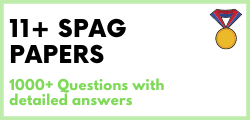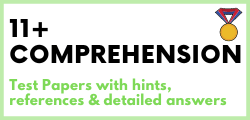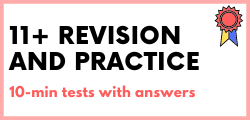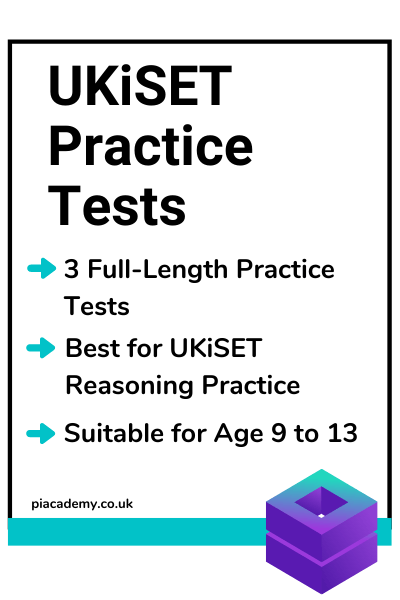UKiSET – The Background
UKiSET stands for United Kingdom Independent Schools’ Entry Test. It is a test that is required as a qualification for admission into several independent and boarding schools in the UK. It is designed to help schools evaluate a candidate from outside the UK for admission, based on how that candidate performs vis-a-vis students from the UK itself.
Table of contents
- UKiSET – The Background
- Scoring in the Reasoning Section
- Scoring in the Cambridge Language Section
- Scoring in the Essay Section
- The Parent Report
- The School Report
- In conclusion
The examination has three main sections, the first of which is further subdivided:
- The Reasoning Section:
- Verbal reasoning
- Non-verbal reasoning
- Numerical reasoning
- The Cambridge Language Section
- The Essay Section
Schools use the results of the UKiset test – called a Profile Report – to determine if a student has the required abilities for admission to the school. Schools also use the Report to map out a study programme for the student, once he/she is admitted to the school.
Here is a brief explanation of the various sections and sub-sections of the UKiSET exam:
The Reasoning Section tests the candidate on his or her ability to apply logic in three main areas; language, shapes & patterns and mathematics.
The Cambridge Language Section is a multiple-choice test that is designed to gauge a student’s ease with English. It lasts thirty minutes. Past test papers are available at the Cambridge website to help students prepare for the test.
The UKiSET Essay Section is used to evaluate a candidate’s ability to use language, vocabulary and grammar appropriately to tackle a specific topic. Topics are changed every day of the test and the aspirant is not given a choice of topics; he or she MUST write an essay on the topic specified.
UKiSET Score- the Reasoning Section
Students’ answers in this section are standardised against the possible scores of students from the UK itself, within the same age range. Based on the number of questions answered correctly, a Standard Age Score – SAS – is generated.
The average SAS of students in the UK is 111. Therefore, technically, the candidate needs to score more than 111 in this section.
Most schools, however, have their own threshold of scores for admission. Top schools generally demand a SAS of 125 or more. Candidates should therefore aim to get a score of more than 125 in order to have a better chance of being admitted to a school of their choice.
Ukiset sample papers are available online and in pdf form to help an aspiring student prepare for the verbal reasoning sub-section of the test. These sample papers and test papers give the student a taste of the kind of questions to expect from the examination. Solving past papers and sample papers also gives a student needed practice in tackling this subsection.
Ukiset vocabulary lists are a great way to expand one’s vocabulary in preparation for the verbal reasoning sub-section of the Ukiset examination. These lists help expand the candidate’s vocabulary and ability to use words within their correct contexts.
Sample papers are also available to help students prepare for the non-verbal and UKiset maths sub-sections of the test. The more a candidate is exposed to such sample papers, the better he or she gets at intuitively selecting the right answer. This helps immensely in keeping control over the time taken to undergo the test since all sections are time-bound.
UKiSET Score- the Cambridge Language Section
The Cambridge Language Test results are equivalent to a CEFR – Common European Framework for Languages – score. Schools usually require a B2 score at the very least. The following diagram shows the levels of scoring for a Cambridge Language Test:
The above image shows that a score of B2 and above is what schools in the UK prefer. Therefore, candidates will do well to aim for a score of 160 and above. Ideally, however, students ought to aim for a C2 level, which indicates that the candidate is proficient in English. This requires a score of 200 and above.
There are many ways to prepare so that one can reach the ideal score indicated above. Solving sample test papers is an excellent means to familiarise oneself with the conduct of the test, and thus have a greater chance of scoring well. Sample test papers are available as online mock tests as well as in PDF form.
It is also highly recommended that students hone their reading skills by accessing a wide range of age-appropriate reading materials. These materials range from books to blog posts, with a lot more in between; including news items, online stories, editorials, opinion pieces, etc. The more a student reads, the better he or she gets at scanning and absorbing a wide variety of texts, something that is definitely a plus while taking the Cambridge test.
Candidates are also encouraged to access a variety of audio inputs ranging from audiobooks to news channels and even TED talks. This will help them absorb the language organically and thus be able to tackle the Cambridge test part of the Ukiset exam with confidence.
UKiSET Score- the Essay Section
This section is generally left to the schools to evaluate according to their own criteria. In general, in this section schools are looking for:
- Structure
- Arguments
- Opinions
Candidates must be able to structure their UKiset essays so that they flow from a crisp beginning, through a logically arranged main body, finally concluding with a clear message to the reader/evaluator.
It is thus impossible to state a definite passing test mark for this section. It may well happen that an essay that is weak in logic is extremely strong in language. In such a case, the school evaluators must come to an agreement about whom to admit to the school.
Writing sample essays from topics available online is a good way to prepare for this section of the test. Since UKiSET generates a unique topic on each day of the test, preparation for a specific topic beforehand is neither possible nor recommended. Instead, students should tackle the different types of topics from which the topic of the day is drawn.
Essays generally seek to gauge the following:
- Command over the English language
- Analytical approach to the topic, moving logically from point to point.
- A clear stance on the issue raised by the topic, supported by logical arguments.
The Parent Report
The Parent report is the one sent to parents/guardians/students themselves. It contains the following:
- The student’s SAS (Standard Age Score), which is a score compared against the generally accepted scores of students from the UK itself.
- The National Percentile Ranking (NPR): This is a score that places the candidate on a scale compared to how students in the UK would score. The lowest score would be the 1st percentile, while the highest would be the 99th percentile.
- The STANINE ranking: This is a ranking system also based on the above NPR, where aspirants are placed in bands depending on their scores.
- Average Scores: Two scores are provided, one with the Verbal Reasoning factored and one in which Verbal Reasoning is not considered.
- The CEFR score is based on the Cambridge LanguageTest.
The School Report
The School report is different from the Parent Report, in that it offers greater insight into the performance of the student. In general, the school report contains the following:
- The Profile Report is based on the student’s performance in the UKiSET exam or mock exam/sample test.
- The student’s performance as compared with students from the UK
- The Student’s essay is to be evaluated by the staff of the schools in the UK.
- The student’s study roadmap, based on informal interaction with the student
- Important issues in teaching and learning.
In conclusion
The UKiset is a significant asset for an understudy looking for admission to a school in the UK. It has segments intended to test a student’s thinking abilities as well as language skills, along with the capability to articulate one's thoughts overtly and consistently in an organised way. To ace the test, the candidate needs to practise with sample test papers. Test papers are also accessible to assist aspirants to get a feel of the sort of scoring that might be used at the test. With the right utilisation of sample tests, records, reading and practising, an applicant is well on his / her way to acing the Ukiset test!

















































